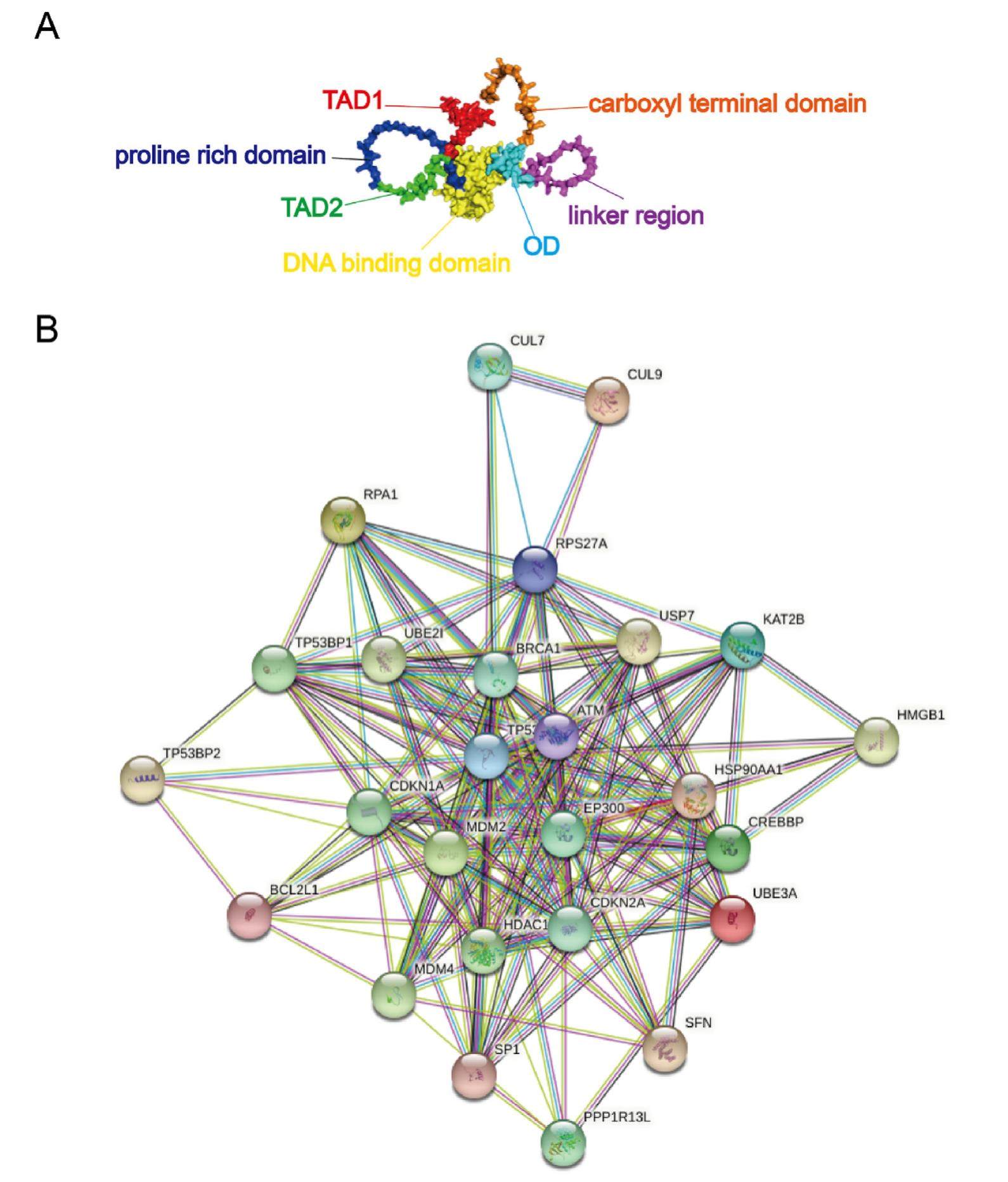
TP53BP2: Roles in suppressing tumorigenesis and therapeutic opportunities


Malignant tumor is still a major problem worldwide. During tumorigenesis or tumor development, tumor suppressor p53-binding protein 2 (TP53BP2), also known as apoptosis stimulating protein 2 of p53 (ASPP2), plays a critical role in p53 dependent and independent manner. Expression of TP53BP2 is highly correlated with the prognosis and survival rate of malignant tumor patients. TP53BP2 can interact with p53, NF-κB p65, Bcl-2, HCV core protein, PP1, YAP, CagA, RAS, PAR3, and other proteins to regulate cell function. Moreover, TP53BP2 can also regulate the proliferation, apoptosis, autophagy, migration, EMT and drug resistance of tumor cells through downstream signaling pathways, such as NF-κB, RAS/MAPK, mevalonate, TGF-b1, PI3K/AKT, aPKC-i/GLI1 and autophagy pathways. As a potential therapeutic target, TP53BP2 has been attracted more attention. We review the role of TP53BP2 in tumorigenesis or tumor development and the signal pathway involved in TP53BP2, which may provide more deep insight and strategies for tumor treatment.
